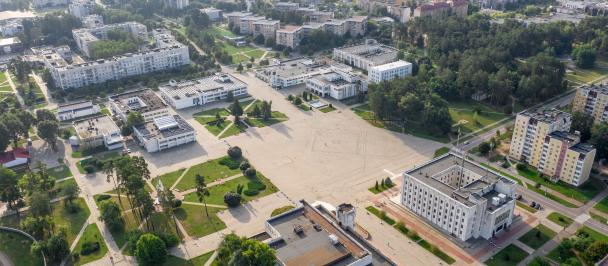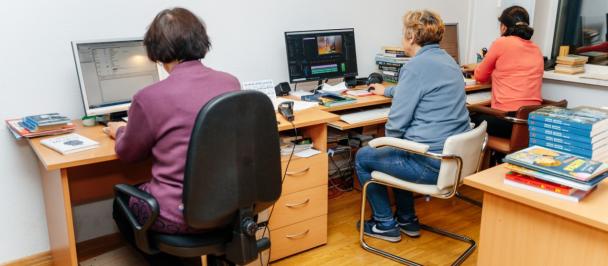Building a community: Forced to flee front-line towns, newcomers to Poltava Oblast village find ways to develop their new home
August 21, 2023
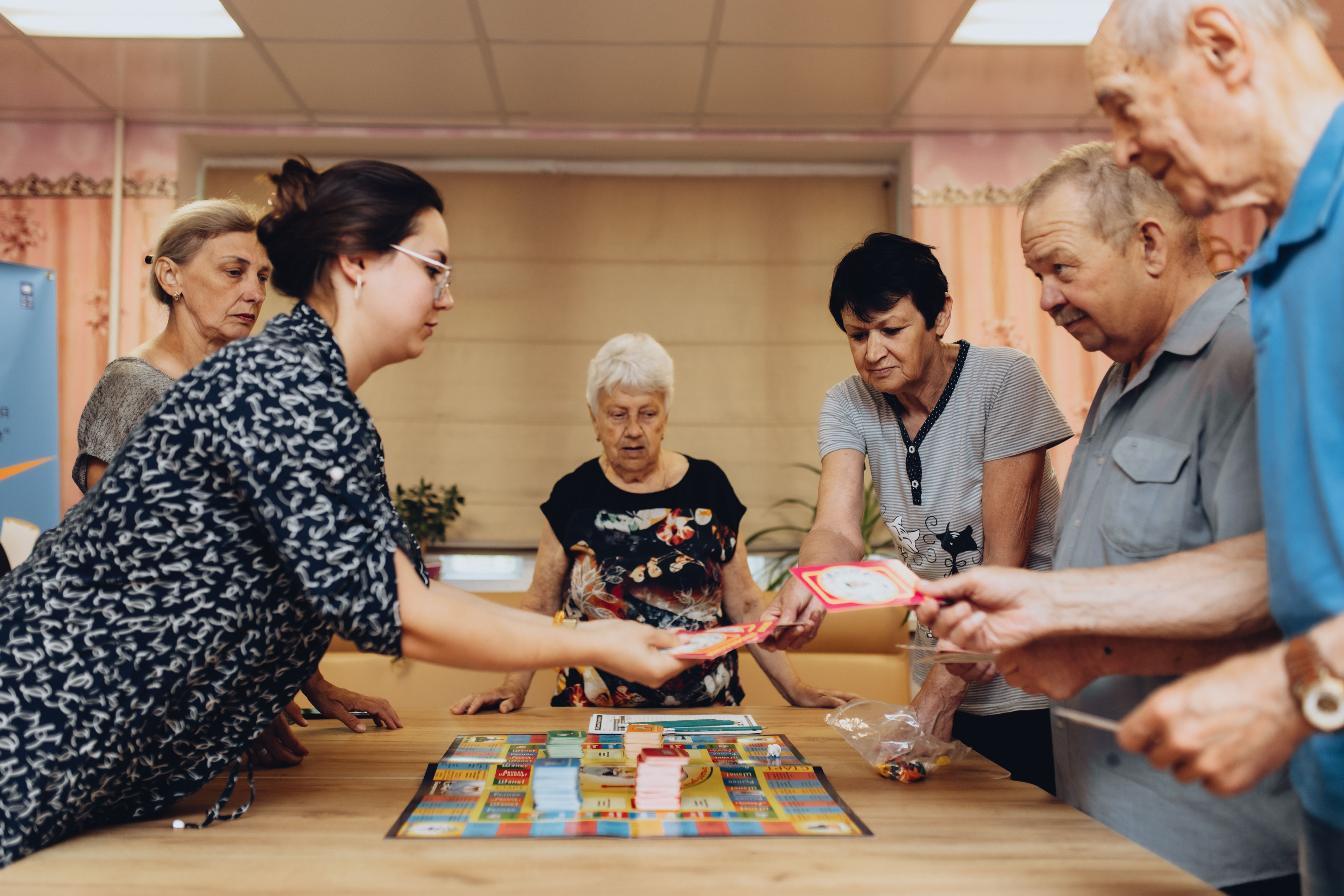
Community members get to know each other by playing board games.
Russia’s full-scale invasion of Ukraine triggered one of the most extensive and rapidly developing crises of forced displacement in history. Millions of people have fled their homes, and hundreds of communities in Ukraine have faced the challenges of accommodating new residents, mutual adaptation, and overcoming prejudices.
The village of Khomutets in Poltava Oblast, a settlement with Cossack roots, was one of the places that opened its doors to IDPs. The most prominent local architectural sight is the ancestral estate of the Muravyov-Apostles, descendants of Ukrainian Hetman Danylo Apostol. During the large-scale war, several dozen internally displaced persons have moved to the village.
Tetiana Krasko, originally from the village of New York in Donetsk Oblast, was one of those who came to Khomutets in May 2022. She was to be housed in a college dormitory, which has become a new home for many IDPs from Donetsk, Kharkiv, and Luhansk oblasts, but had trouble finding it. Tatiana finally reached her destination after getting lost and twice missing the right turn (the road signs had been removed for security reasons).
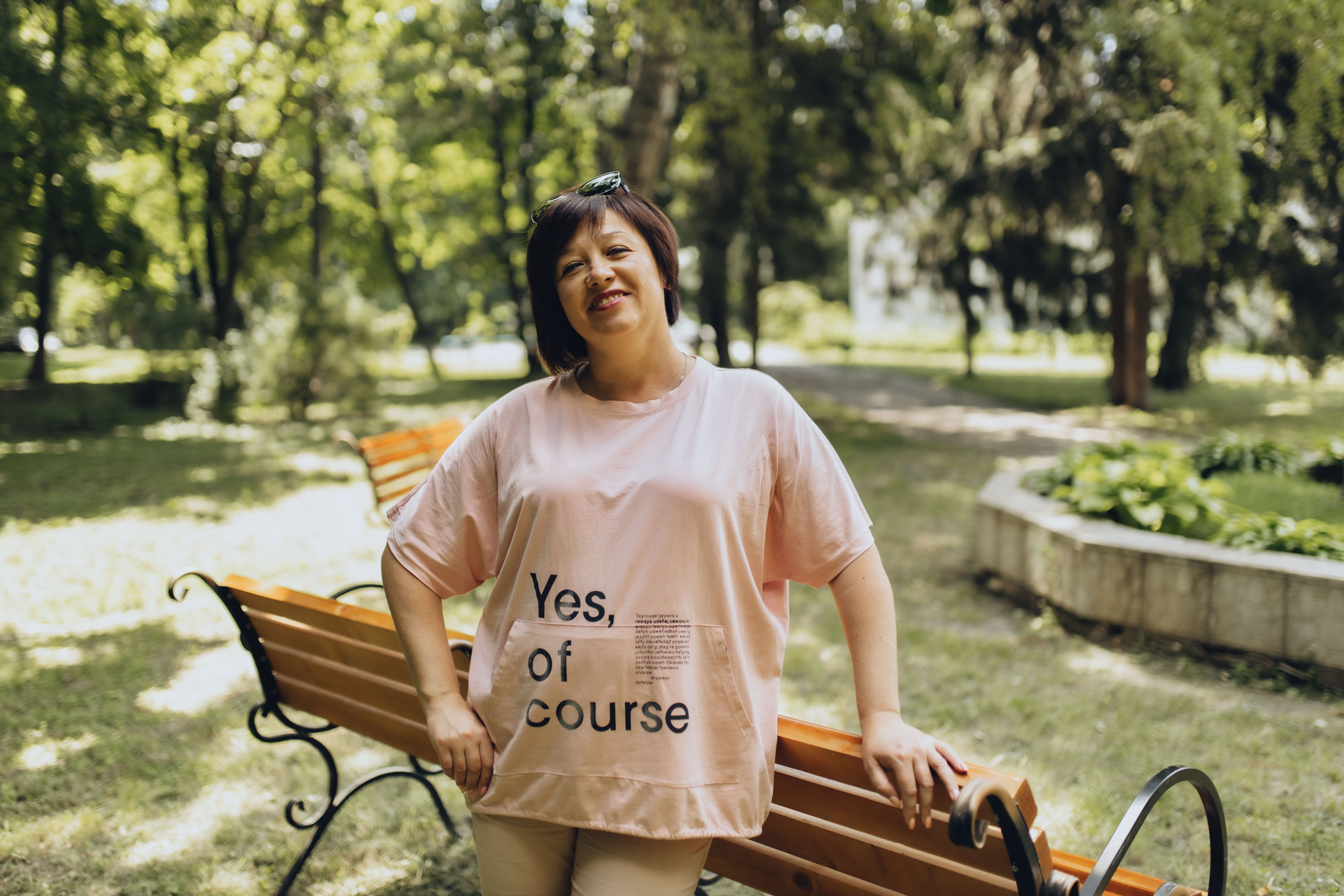
Tetiana Krasko, head of the NGO “Studio of Public Women's Initiatives,” in the village park.
Serhii Shynkarenko, the director of Khomutets Professional College, who has headed the institution since 1995, came out to meet her. Tired after a long day at work, he saw an unfamiliar car from his window.
“I was looking for a job, as we’d found ourselves in a horrible situation: we were forced to leave our home,” says Krasko . “I remembered 2014 when we sheltered the first internally displaced people in New York. By chance I met a woman from Myrhorod District Council, and she shared Serhii's contact with me. That's how I ended up in Khomutets.”
Since Krasko's hometown is close to the front line, it has been under constant shelling since 2014. For three years, the residents of New York accommodated IDPs from other locations, arranged shelters, and received humanitarian aid. In 2018, Krasko took part in a UNDP study tour to Chernivtsi for people from Donetsk and Luhansk oblasts, which provided her with new experience and knowledge of the work of non-governmental organizations. That same year, she and her fellow villagers founded four NGOs: a youth organization, a women's organization, an educational organization, and an organization of older people.
But Krasko hadn’t expected the full-scale invasion of Ukraine by Russia. The war took away her home, her community development projects, and her “Studio of Public Women's Initiatives” NGO team, which almost disintegrated.
When she arrived in Khomutets, Tetiana noticed that the internally displaced people who lived in the dormitory did not communicate with anyone, not even with each other.
To remedy this, she initiated the “IDPs as a Resource for Community Development” project, supported by the EU and UNDP.
Over the past six months, Khomutets residents and IDPs have organized events such as “Collective Impact,” “Health Fair,” and “Bike Ride” as part of the “IDPs as a Resource for Community Development” project, and have set up a shared space for communication in the dormitory.
And with the support of the EU and UNDP, the dormitory was renovated and furnished.
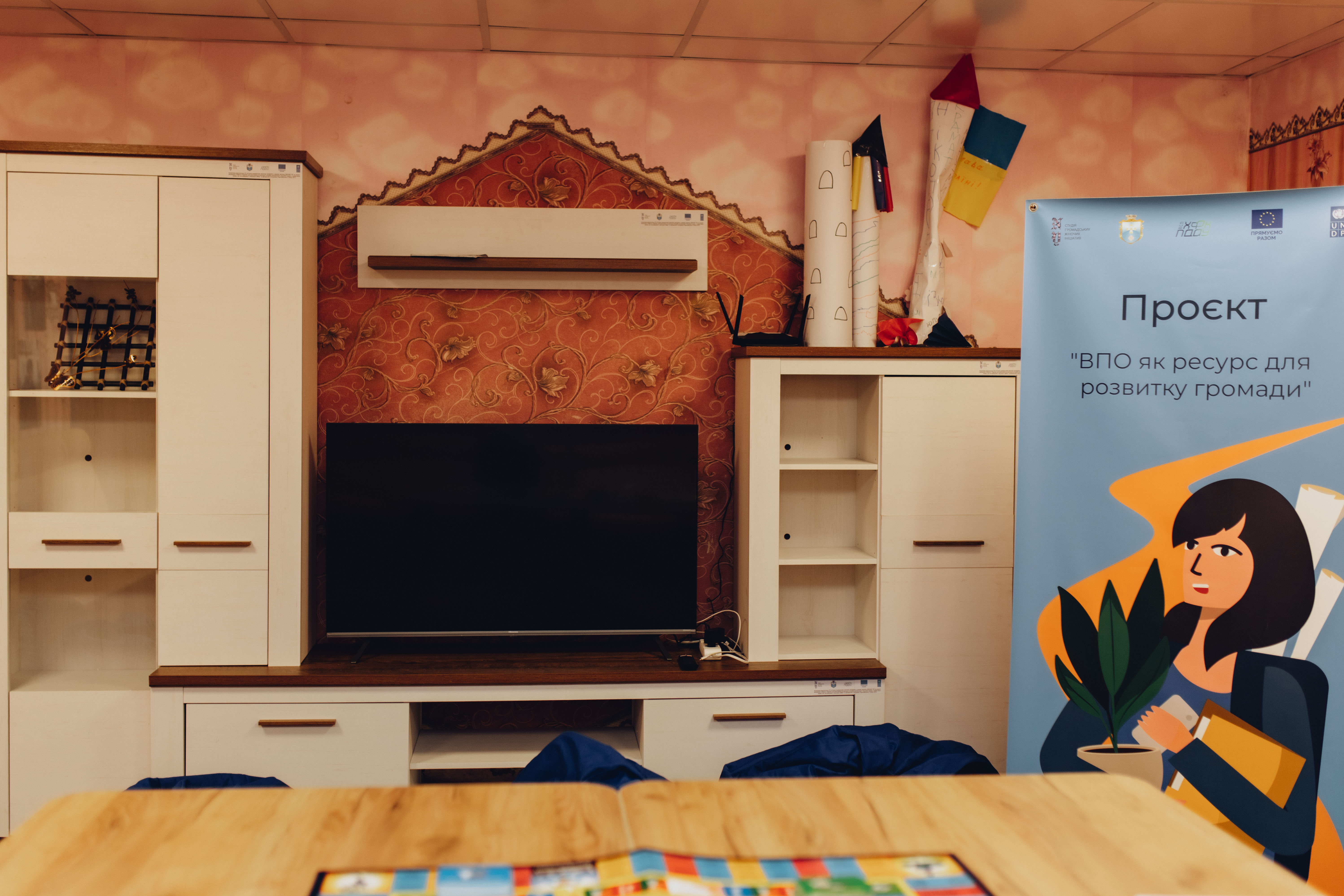
The common space at the dormitory. Photos: Pavlo Maliovanyi / UNDP in Ukraine
The community became especially united when residents and IDPs worked shoulder to shoulder to improve Khomutetskyi Park, the “pearl of the village.” Among other restoration activities, participants planted trees for a future “Victory Garden.”
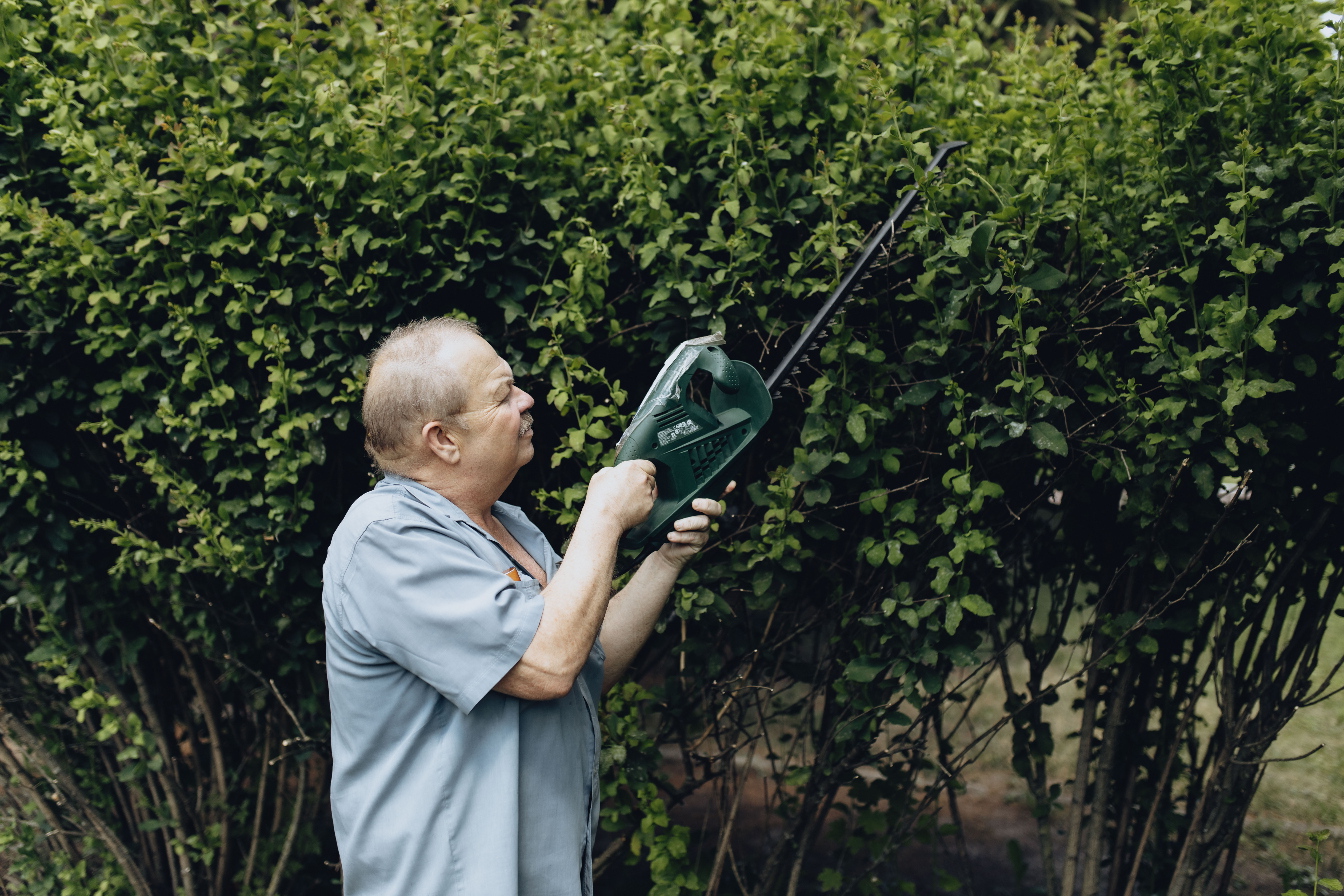
A community member uses a hedge trimmer during the renovation of the village park.
One of the project’s main achievements was to set up a joint Coordination Council in 2023 (during the “Collective Impact” event), which drafted a roadmap for the development of Khomutets.
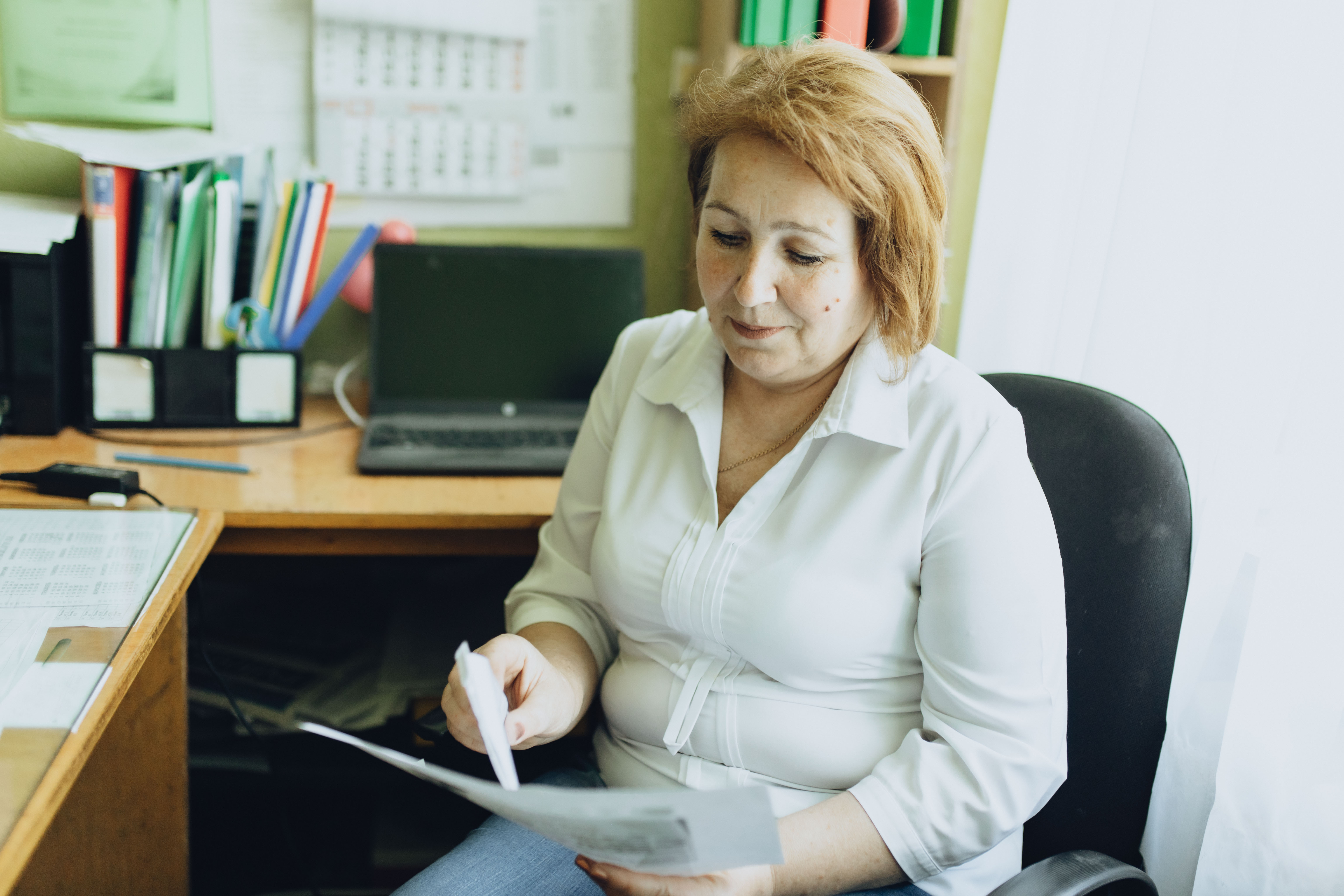
Valentyna Arshynova, the director of Khomutets secondary school. Photo: Pavlo Maliovanyi / UNDP in Ukraine
The community has become much more active due to improved communication and interaction between different actors: the college, secondary school, club, church, etc.
One day Tetiana received a call from an unknown number. It was Valentyna Arshynova, the director of the local secondary school.
“I know you help everyone here, so please help the storks as well,” Valentyna said, sounding anxious.
“During a bad storm, a nest was torn down, and a stork chick fell out of it,” Tetіana recalls with a smile. “The birds needed to be fed. I had never helped storks before. We raised funds and bought fish together. And when the rescued storks flew away, the villagers and I naturally continued our cooperation.”
“Our school also functions as a local community centre. This means that we actively unite all community members around us,” says Valentyna.
When Tetiana Krasko learned about this distinctive feature of the school, she invited Valentyna Arshynova to join efforts and implement the “IDPs as a Resource for Community Development” project together, including holding a “Collective Impact” event at the school.
“I truly believed in it. The event was huge and extremely valuable,” says Valentyna, speaking about her cooperation with the renewed team of the “Studio of Public Women's Initiatives” NGO, headed by Tetiana. “We met the IDPs. They, in turn, took a fresh look at our village and our life. Later, we developed a joint action plan to support the college dormitory, where more than 80 IDPs lived at the time.”
“We wanted to integrate IDPs into the local community more fully, to make them feel more secure, to give them a sense of home,” recalls Oksana Licherep, a project manager who joined the team of the “Studio of Public Women's Initiatives” NGO after the full-scale Russian invasion.
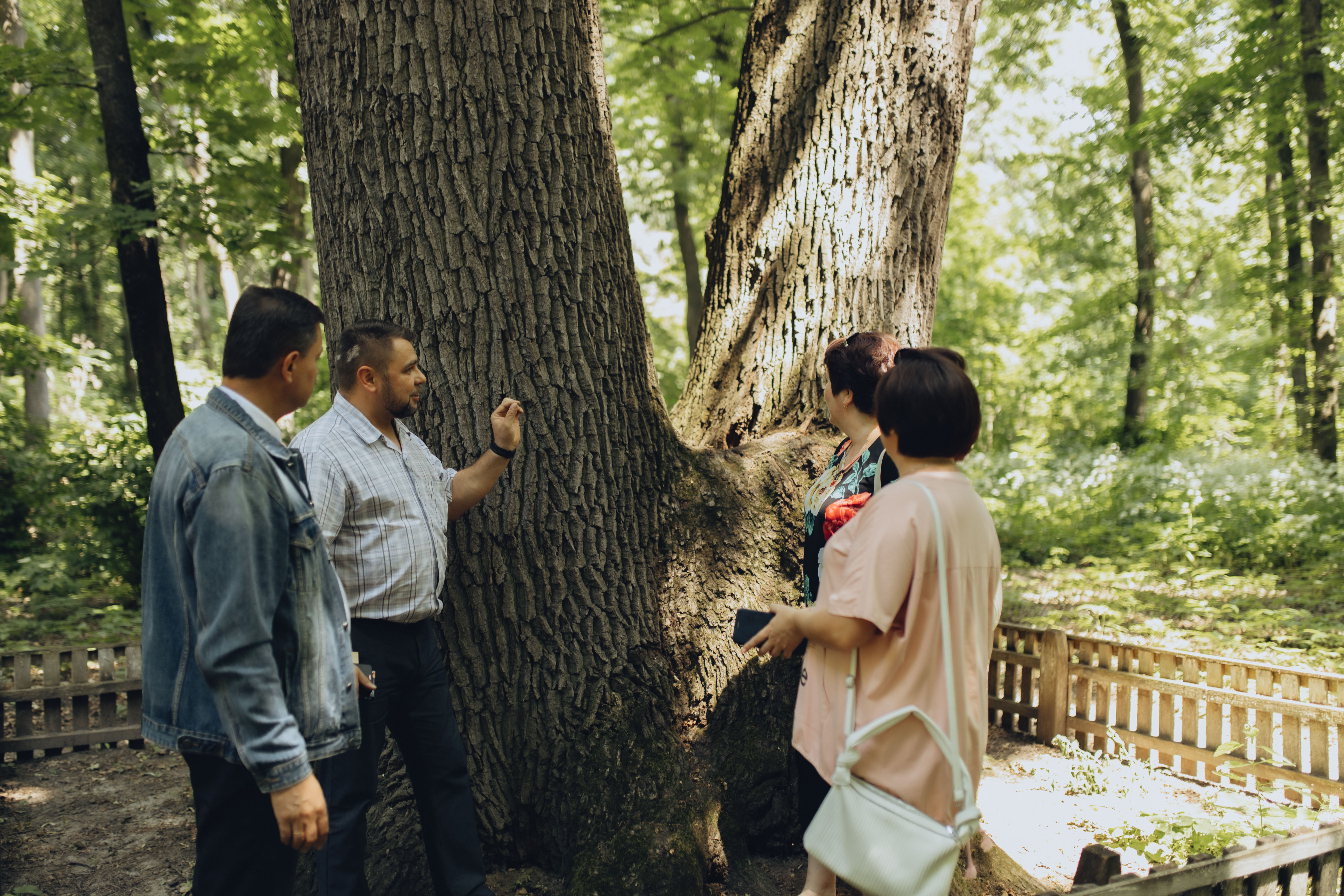
Community initiative group members at the village park.
A survey was conducted in Khomutets in 2023, and one of the key questions was: “Would you host IDPs as you would your relatives?” Initially, local residents were cautious about IDPs. But shared activities within the project united the entire community.
“The IDPs used to not even interact with each other,” says Tetiana. “Everyone was left alone with their thoughts. At first, these people were afraid of making new acquaintances, but later they became friends with each other and the locals.”
The project also provided lighting for the school’s basement – used as a shelter for students during air raid alarms.
“Children would run to the shelter, and the lights would mostly go out during an air raid,” says Valentyna Arshynova .
“There were days when pupils sat in the dark for hours. The project provided us with a portable charging station with solar panels. This is very important for the children.”
According to the latest data, almost 2,500 people live in the village of Khomutets. Serhii Shynkarenko, the director of the Khomutets Professional College, says that more than 250 IDPs now have jobs here. In particular, the IDPs work in the transportation and food sectors and grow fruits and vegetables on land plots allocated to them by the locals.
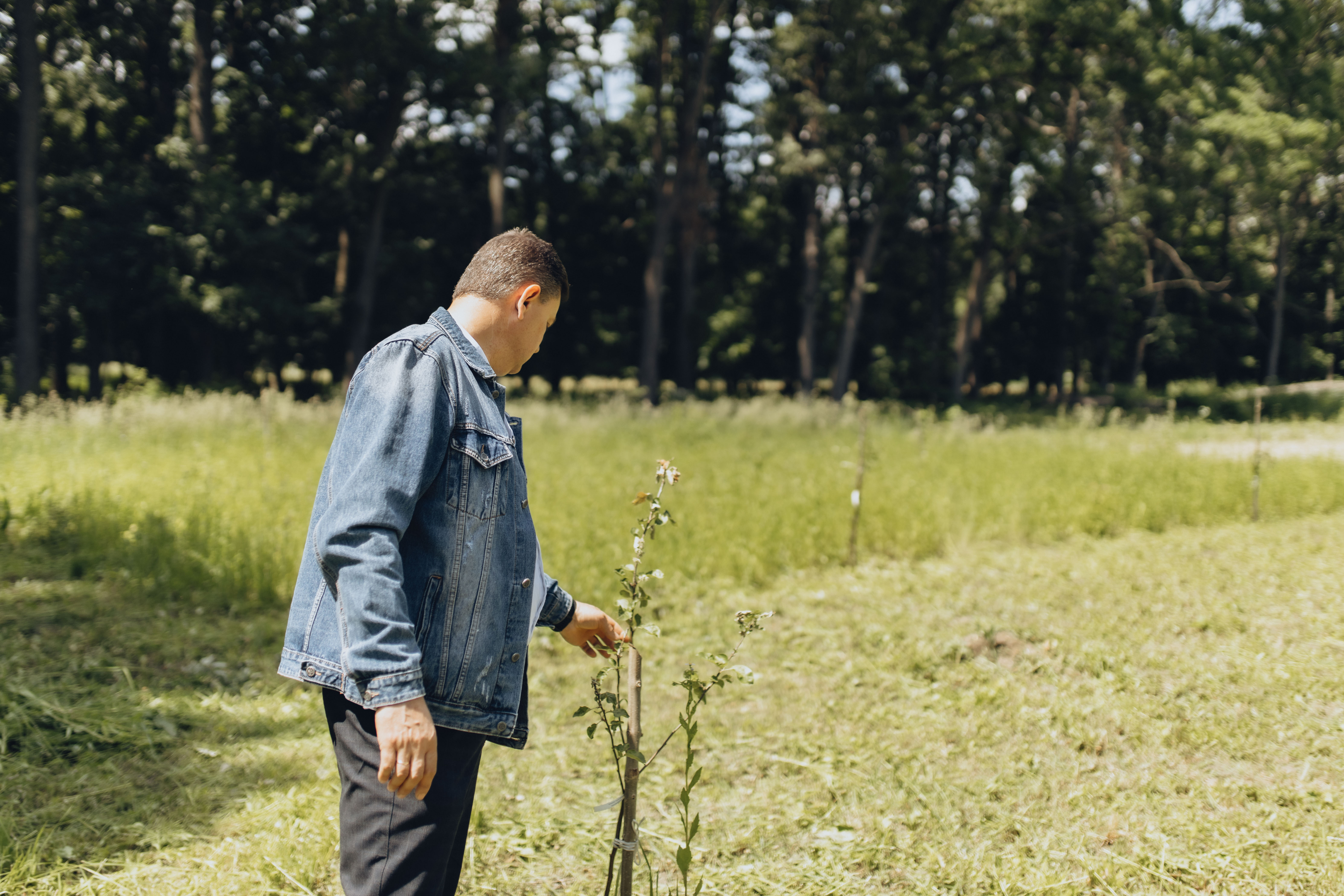
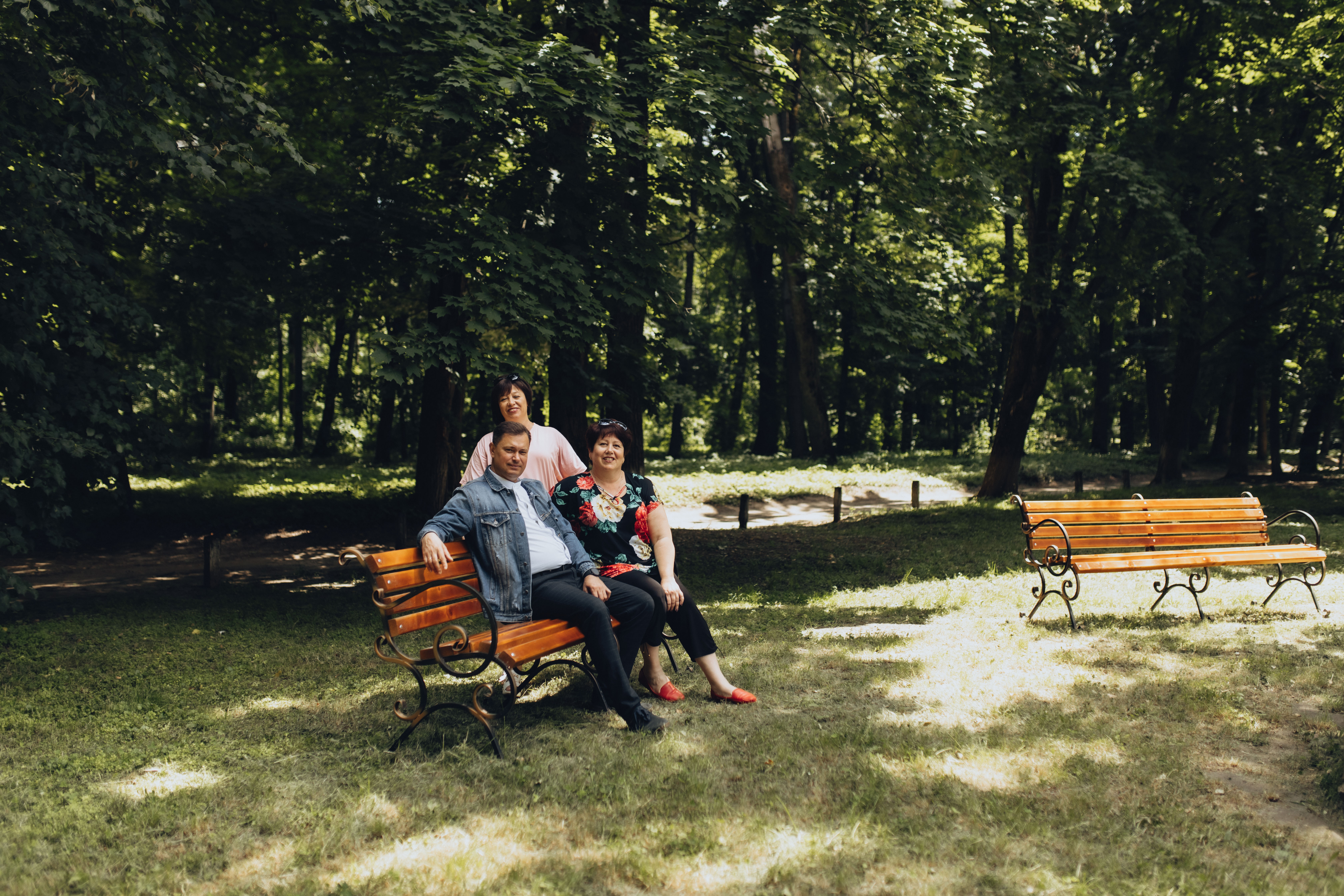
Serhii Shynkarenko, the director of Khomutets Professional College, at the new garden that was planted as part of the project.
"For our village, internally displaced persons positively impact the development and dynamics of our rural life," says Shynkarenko.
Meanwhile, psychologists from Khomutets College provide emotional support to IDPs, organizing cultural events and art therapy to improve their mental well-being.
Khomutets has come to life again, and so did the Muravyov-Apostles Palace, which was used as a backdrop for a themed photo shoot held for local women and IDPs. The pictures now decorate the renovated common space in the dormitory.
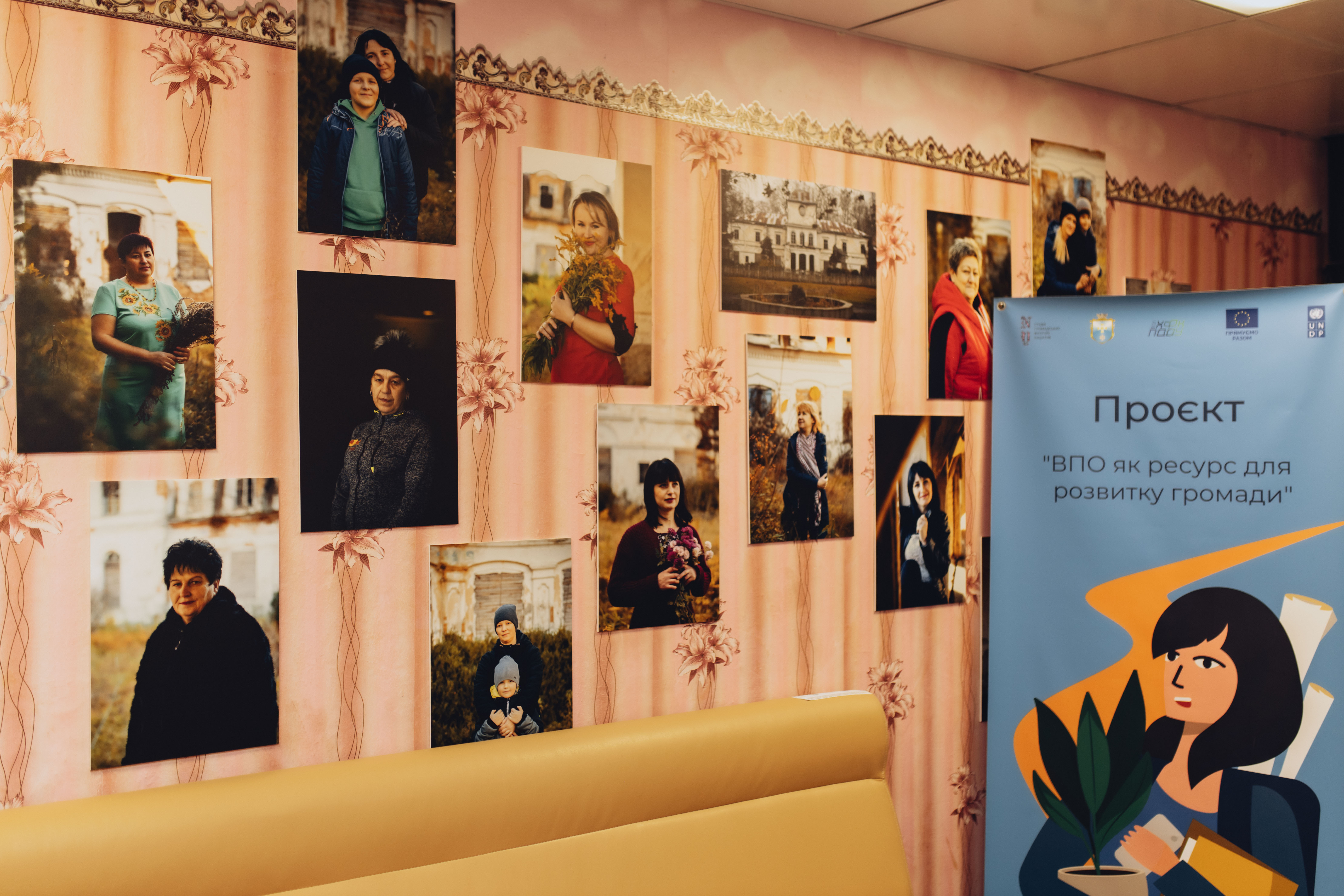
Photos of local residents in the dormitory common space.
The NGO " Studio of Public Women's Initiatives” is one of the organizations that received support within the program “Response of civil society to the needs of women and men, especially those living in hard-to-reach places and representatives of vulnerable groups” supported by the European Union (EU) and the United Nations Development Programme (UNDP) under the EU-funded EU4Dialogue regional programme to address the most urgent needs of war-affected communities in Ukraine. The EU4Dialogue programme aims to build a solid foundation for peace by creating better socioeconomic conditions and a safe environment for war-affected communities.
Author: Marharyta Lubkova
Photos: Pavlo Maliovanyi / UNDP Ukraine
Note: This article was produced with the European Union's and UNDP's financial assistance under the EU4Dialogue programme. The contents do not necessarily reflect the views or positions of the European Union or UNDP.

 Locations
Locations


